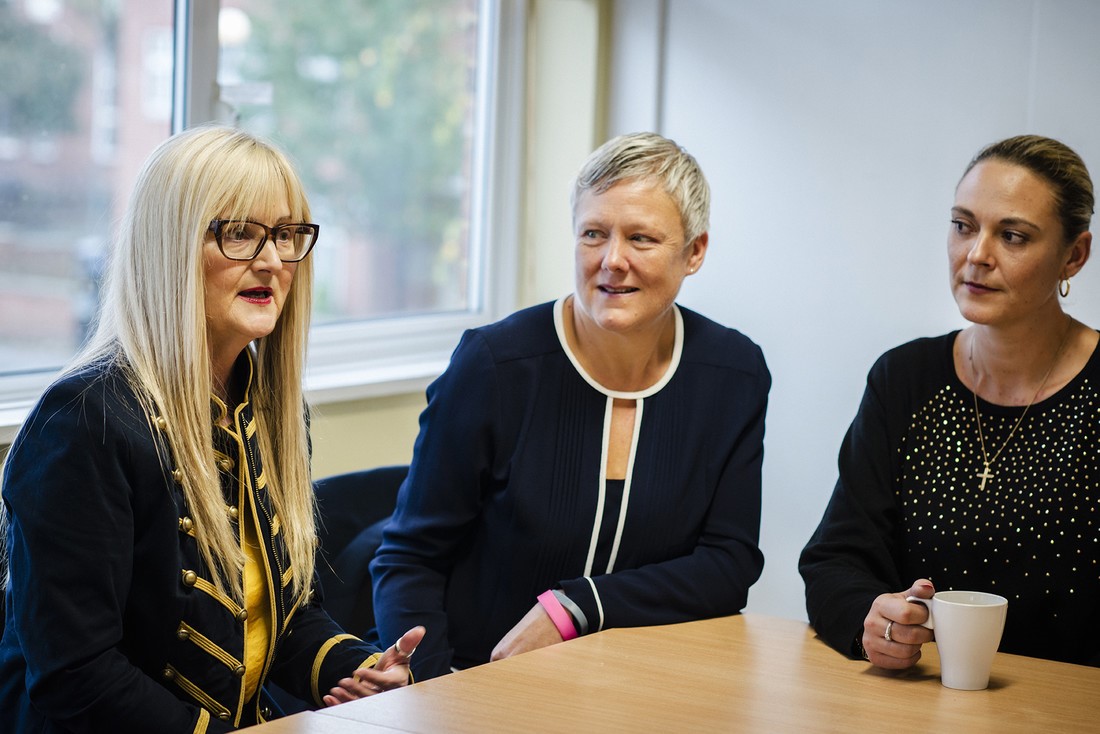Find out more about our updated and revised toolkit for nurses working with secondary breast cancer patients.
For over a decade we have campaigned to improve the care and treatment for people with incurable secondary (metastatic) breast cancer.

We set up and coordinated the Secondary Breast Cancer Taskforce in 2006 which identified gaps in treatment, care and support for people living with the disease. In 2011 informed by the Taskforce’s work, Breast Cancer Care published its Secondary Breast Cancer Nursing Toolkit. The aim of the toolkit was to help nursing teams and managers look at improving the specialist nursing support they provided for their patients.
A need for change
While the care and support of this group of patients has since improved in some areas, in others, those diagnosed with secondary breast cancer are still not getting the support they need.
The toolkit was invaluable when I started in post. I could read other nurses’ accounts of how they set up their service and this made me feel as if I was on the right track, when sometimes I didn’t.
Wendy Aynsley, Clinical Nurse Specialist, Secondary Breast Cancer, Cornwall
Nurses want to make a difference
Within breast cancer nursing, there is a very definite desire to improve services currently provided by many NHS Trusts for these patients. Nurses tell us that they gain much from sharing good practice ideas and models with others. This is very much the case for those working with patients diagnosed with secondary breast cancer – and collaboration, networking and sharing practice have been at the forefront of many of the improvements made so far.
At one particular meeting there was a lot of discussion about problems and solutions others had to ensure all patients were seen and supported. Many of the nurses had different ways of doing this – I picked out several to try and used the toolkit. As a result, I now have a more robust way of ensuring patients’ needs are met in a more efficient way.
Sue Ledden, Macmillan Clinical Nurse Specialist, Breast Care, York
Sharing to improve care
Following our Secondary, Not Second Rate campaigns and publication of the Best Practice Report for secondary breast cancer in 2018, we are now launching an updated online version of the Secondary Breast Cancer Nursing Toolkit.
The new toolkit has been developed in response to the members of our Secondary Breast Cancer nursing group, designed to bring together nurses working with people with secondary breast cancer, enabling them to share expertise and influence positive changes in patient care. Members often contact us for guidance and support in developing and improving the service they offer to their patients.
Having access to share good practice is invaluable.
Justine Crewe, Secondary Breast Cancer Advanced Nurse Practitioner, Cheltenham
Making a real difference for patients
Designed to be a dynamic resource that can be added to, the toolkit covers a range of issues for any nurse who wants to improve care for this patient group. It includes a case for change in the provision of nursing support, and tools for developing personal knowledge and skills relevant to a role within secondary breast cancer specialist nursing. There is also practical guidance to help nursing teams develop their services to maximise benefit for patients.
As there is a continued lack of exact figures of those diagnosed, it also looks at how to collect such data to support the need for specialist nursing services at a local level, and offers a portal of practical tools to help individuals and teams when setting up and developing services.
As well as a number of time-saving resources and templates, there’s also access to real examples, case studies and innovative strategies from nurses in current practice in order to share what others have achieved and how they’ve improved the patient experience.
We want to continue supporting specialist nurses to improve services, and ensure everyone affected by secondary breast cancer receives the support they deserve to improve their wellbeing and quality of life.